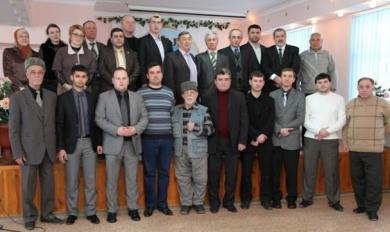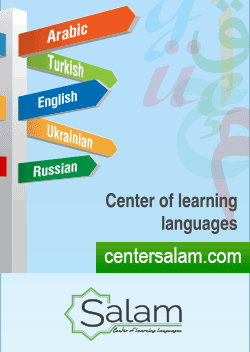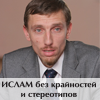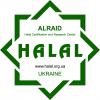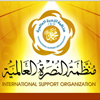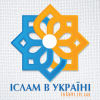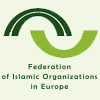On March, 13th, 2012, in Simferopol took place the international seminar “Problems of xenophobia and Islamophobia in ethno-political and confessional lives of Crimea”, organised by the AUASO "Alraid" together with the Crimean Scientific Centre of Islamic Studies.
Experts from Ukraine, Georgia, representatives of Scientific Research Institute, universities, authorities, social and religious organisations discussed the problem of presence in ethno-political and confessional lives of the Crimean peninsula of factors of xenophobia and Islamophobia.
They not just carried out the all-round analysis of the current situation in this sphere, but also developed offers on prevention of these negative phenomena.
After a salutatory word of the chairman of the AUASO "Alraid" in Crimea, Ali Mohamad Taha, acted the vice-president of Medzhlis of the Crimean-Tatar people, Refat Chubarov. He stated his confidence in necessity of such actions as the Islamophobia problem is very pressing in Crimea, and expressed a hope that the authorities will mind experts in this area.
The chief of the department of religion at the Ministry of Culture, Alexander Selevko, in his report characterised role and position of religious organisations in Crimea and across Ukraine. Having sounded statistical, he complained on lacks of the current legislation of Ukraine concerning activity of religious organisations, both Muslim and Orthodox. Thus these two faiths try to be mutually tolerant; as an example he resulted the relationships between the Simferopol diocese and the Muslims of Crimea. They refused from their decision to build temples on historical lands of Muslims, already having in their hands all the necessary documents.
Ignorance and provocations - two basic threats to the inter-confessional peace
Abesalom Aslanidze, PhD, told the present about position of the Georgian Muslims from the moment of disintegration of the Soviet Union, about their separation and absence of adequate knowledge in the field of Islam. In Georgia there is a similar problem: at present the question of repatriation of the Muslim population (the Meshetin Turks) deported by Stalin is solved in the same way. Mister Aslanidze noticed that the situation is similar to the Crimean Tatars when the repatriation question is not solved up to the end, and at present the state is actively engaged in decision of this question.
However, the Georgian Muslims, which number is about 115 thousand people, face another problem: due to absence of well-educated in the issues of religion authoritative persons, Ummah is separated and subject to influence of radical sects that gives an occasion to Islamophobia occurrence. Doctor Aslanidze expressed hope of the prompt decision of this problem at the state level.
Islamophobia is exploited by various political forces, thereby quite often creating conflict situations. This process was visually explained by the senior lecturer of the Sevastopol National Technical University, PhD, Ammar Kannah. He also did not ignore the promotion of the connection “Islam = hatred and terrorism” by means of mass-media, computer games, Internet provocations.
In the light of this information huge interest caused the report of PhD, the scholar of religious studies, Ayder Bulatov, on how representatives of the Crimean authorities frighten the Kiev management with the incorrect information.
The vice-president of youth social organisation "Emel" Dilaver Saidahmetov told about the features of youth policy in Ukraine, having referred to the people's deputy, Victor Korzha, who named unsystematic character of this policy as a principal cause of its uselessness. The lecturer complained about the lacks of the state information policy in conditions of inter-confessional societies in which result for 20 years from the beginning of repatriation of the Crimean Tatars in their environment the whole generation without the adequate information on the Islamic culture and culture of inter-confessional relations has grown.
Unification of adherents of different religions on the basis of general values
However despite the created (frequently artificially) inter-confessional pressure on the peninsula, the participants of the seminar resulted examples of good-neighbourhood existence of representatives of different religions; people refused to give in on provocation and solved the issue amicably as their religion teaches each of them.
And though the generality of set of values of the two most widespread faiths on the peninsula gives to their adherents a good and stable platform for dialogue and mutually advantageous cooperation, all participants of the action agreed that this question nevertheless should be solved at the state level. Both central and Crimean authorities should make necessary changes in legislative and under-legislative statutory acts which will promote creation of equal and favorable conditions for functioning of religious organisations; and also strictly to observe the legislation and the ratified international certificates on position and rights of ethnic minorities.
Intolerance in relation to Muslims is usually named "Islamophobia", however, other terms are used, too. As it was noted by the head of human rights organisation “Together with the law”, Olga Fryndak, among discrimination actions in Crimea a great bulk is made by youth, therefore at formation of approaches of effective overcoming of this phenomenon participation of experts of the Ministry of Education is required. It will help to impart tolerant relation to representatives of other ethnic and religious groups from preschool age; becoming an organic part of educational process. In working out of similar programs it would be possible to take for a basis the methodical grant prepared by the OSCE “Counteraction of intolerance and discrimination concerning Muslims. Supervising principles for teachers”, which was recently translated into Russian.
She expressed her regret that the representative of the Ministry of Internal Affairs could not come to the seminar and tell what particular actions are carried out by this department in the sphere of overcoming of xenophobia, racism and ethnic discrimination in the Ukrainian society.
Summing up, the organizers noticed that the discussion of problems on similar actions smoothen borders of vigilance and fear between various ethnic and confessional groups, inviting them to mutual trust and fruitful cooperation for the common blessing.
Staff reporter.

